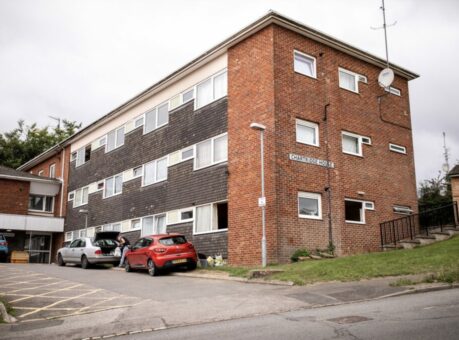
The law on property guardianship got even clearer this month, as the Court of Appeal ruled that guardians can’t dispute a possession order as long as the property guardian company has carried out its work correctly.
The judgement also reinforced previous rulings that guardians are licensees not tenants, and that property guardian companies are entitled to evict their guardians even though they don’t own the buildings where they operate.
What happened
In a judgement known as Global 100 Ltd v Laleva (2021), three Court of Appeal judges heard a case in which a guardian, Ms Laleva, was taken to court by Global 100 Ltd, a property guardian company, who wanted to evict her. At the first hearing, in front of a District Judge, the guardian company won and was given the right to evict Ms Laleva. Ms Laleva subsequently appealed on the basis that she was a tenant not a guardian, and that it should have been the building owner, not the property guardian company, which evicted her. She argued that the possession order should not have been granted without a full hearing to decide these matters.
Her appeal was heard by a Circuit Judge, who ruled that the District Judge had been wrong to make a decision about the case at the first hearing. The judge decided that Ms Laleva’s claim that she was in fact a tenant not a licensee ought to be considered, so the issue should have gone to trial. The Circuit Judge did, however, agree that the guardian company had the right to bring the possession claim. Global 100 appealed against the judgement that the possession order should have been delayed, and Ms Laleva appealed against the decision that the property guardian company had the right to bring the possession claim, so the case went to the Court of Appeal.
The Court of Appeal issued its judgement on 3rd December, and its decision was entirely in favour of the property guardian company. It ruled that Ms Laleva did not have any realistic prospect of succeeding with her tenant/licence argument because it was clear throughout that she was living in the building to take care of it on behalf of its owner, and because she did not have exclusive possession of it. Both of these are hallmarks of licences, not tenancies. The court also ruled that the property guardian company was the correct organisation to bring the possession claim. This means that the District Judge was correct to issue a possession order on the first hearing, as Ms Laleva’s defence didn’t meet the standard needed to require a trial.
Because the Court of Appeal is second only to the Supreme Court in its power to set legal precedent, this means that there is no longer scope for guardians to delay possession orders by disputing the basis on which they are living in the buildings where they are placed.
Full analysis of the judgement is available from Giles Peaker, a solicitor who specialises in the law on property guardianship, here.
Our view
Over the past ten years, we have been glad to see the status of property guardian companies and property guardians themselves becoming more clearly established in law. This month’s judgement is an important step towards cementing that, giving continued assurance that guardian companies are entitled to much swifter possession orders than residential landlords.
Property guardianship was new when we launched a decade ago. So, at that time, our legal model relied on precedents set in cases relating to other forms of occupation where people are housed as licensees rather than tenants, such as hostel residents, almshouses and workers’ accommodation. It has been reassuring to see, as cases have come to court, that we were correct in our original understanding of how the law would operate.
This increased clarity is also good news for property owners, property guardians and anyone living near buildings undergoing regeneration. It is good news for property owners because it means that they can have confidence in relying on property guardian companies to provide reliable, cost-effective security and prompt vacant possession. It is good for would-be property guardians because greater legal certainty will increase the number of buildings handed to guardian companies, meaning that we will be able to provide larger numbers of homes to people looking for inexpensive places to live. And it is good news for local residents because it will mean that fewer buildings will be left empty unnecessarily, meaning that they can have a positive impact on neighbourhoods, rather than being a blight.


